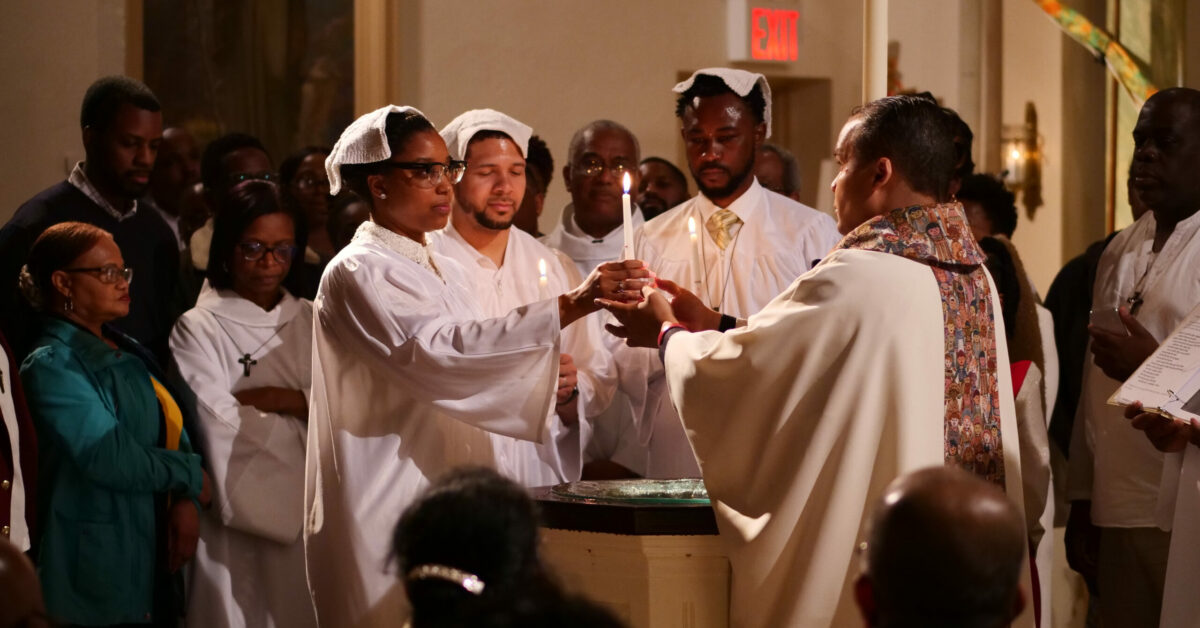Mystagogical Catechesis: Formation through Paschal Mystery for Life
To couch this in the language of George Lindbeck, we in the LCMS are thoroughgoing cognitive-propositionalists. Our catechetical instruction and formation proceeds out of the (often unexamined) assumptions of the Enlightenment that the primary means of formation go through our heads. The catechumenate calls us to give attention to the variety of ways in which we learn and to a more holistic pedagogy. Catechesis in the catechumenate is not only about the head, but also about the heart and the body. We learn intellectually, emotionally, psychologically, relationally, and physically. Mystagogical catechesis aims toward such a holistic formation through the entire catechumenal process. Not only during the period of Mystagogy. In that sense, the catechesis of the period of Mystagogy should be a deepening of what took place throughout the rest of the catechumenate.
But what is mystagogical catechesis? [I’m going to rely on Roman Catholics here because they understand what mystagogy is in ways that we as Lutherans are only beginning to penetrate.] I find Roman Catholic scholar Timothy O’Malley’s description compelling: “Mystagogy is a stance toward the entirety of life, seeing every part of our existence through the mystery of Christ” (Divine Blessing, 128). That mystery is that the Triune God rules in grace and love over his creation through the life, death, and resurrection of God the Father’s Son Christ Jesus. Mystagogy is seeing all of life through the paschal mystery. Roman Catholic Diana Macalintal describes the mystagogical catechetical task this way, “We bear the great responsibility of translating, interpreting, and helping seekers…see the world in which they live through the eyes of faith. We also have the great gift of presenting the longing and needs of our seekers to God whom we believe by faith will heal them and draw them closer to Him in love. When we do this, we make the mystery of God no less mysterious but all the more knowable” (Your Parish is the Curriculum, 99).
Mystagogical catechesis during the period of Mystagogy interprets the initiatory experience of the newly baptized (their baptism, anointing, and reception of communion for the first time through the paschal liturgy). It interprets and applies that ritual experience to their lives of faith in this world through the Word of God that they hear week in and week out. It is to interpret life itself in view of the experience of baptism and the Lord’s Supper within the story of God in Christ as that story is rehearsed Sunday to Sunday. O’Malley again argues that the period of Mystagogy “is the right time to teach a way of reading time in a liturgical key. What do I mean? During the season of Easter, we come to see how every dimension of human life can be transformed through the resurrection. On Easter, food is blessed. Water is blessed, All creation is blessed. Thus, we’re especially aware at this time of the way that the church can bless all of life, all of time, all of space. Everything” (Divine Blessing, 129). Mystagogical catechesis guides the newly baptized into such an interpretation of all of life.
Diana Macalintal advocates that we ask these kinds of questions to facilitate this mystagogical reflection, this holistic catechesis during Easter:
Encounter: First, participate in Sunday liturgy and so encounter the crucified and risen Lord.
Recollect: How did you encounter Christ in that event? What did you see, hear, and do in your initiation into Christ and in the Sunday liturgies that followed?
Reflect: What was most memorable moment about encountering Christ in that initiatory event and in the Sunday liturgy?
Catechesis: How does the Word of God inform the nature of the encounter with Christ in all those liturgical events and in events in the parish’s life? (Your Parish is the Curriculum, 103).
Facilitating reflection in this way allows catechists and pastors to weave doctrine and confession into lives of faith in light of the baptismal and Eucharistic experience and formed by the story of God told through God’s Word.
